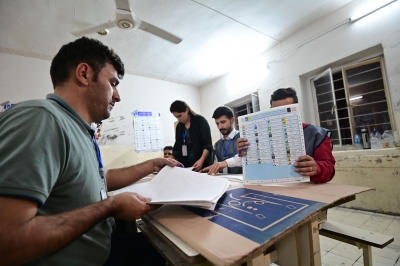Climate change, growing population forcing 4 countries to move capital cities

The decision to move the capitals of South Korea, Indonesia, Egypt, Equatorial Guinea, and the British overseas territory of Montserrat was prompted by increasing population, climate change, and natural conditions instead of political or security reasons.
According to data compiled by Anadolu Agency, while only Montserrat's capital is a "ghost town" today, the capitals of the other four countries are home to a significant part of the respective countries’ total population.
In the past, many countries such as Kazakhstan, Pakistan, Brazil, Malaysia, Nigeria, and Myanmar changed their capitals due to political reasons.
However, when we look at the past 50 years, natural events, climate, and economic reasons as well as population growth lie behind the changes in the capital cities rather than political reasons.
Egypt's New Administrative Capital
Egypt’s capital Cairo, which is among the most populated cities across the world, is also among the most important cities in Africa and the Muslim world, as well as one of the leading cities with its thousands of years of history.
While the city is estimated to reach a population of 40 million by 2050, the construction of the new capital, which includes high-level public buildings, embassies, and important financial institutions, started in 2015 which would bring the government buildings closer together and reduce the population and traffic burden of Cairo.
The new city was named the "New Administrative Capital" for the time being.
Jakarta
Jakarta, the capital of Indonesia which is one of the most populated countries in the world, is one of the cities that has started to move.
Although the relocation efforts of the city with a population of more than 30 million began in 2019, it was delayed due to the COVID-19 pandemic.
The capital is planned to be relocated to the new city Nusantara on the island of Borneo in 2024 due to reasons linked to increasing population and natural calamities.
On the island of Java, Jakarta is the largest city in the country with a population of approximately 275 million and is faced with various disasters, especially floods, every year.
It is estimated that approximately 25% of the city will go down to sea level or below by 2050.
Population, proximity to North Korea
Plans to relocate the capital Seoul were scheduled in 2003, and the establishment of Sejong city began in 2007.
Full relocation to Sejong, where all the ministries and government offices except for the Presidential Palace and the National Assembly have been moved, will be completed in 2030.
Among the reasons for moving to the capital Seoul is the increasing population.
The fact that Seoul is about 30 kilometers (Over 18 miles) away from the North Korean border also poses security concerns.
Another reason for the relocation is to bring economic activities to the central regions of the country.
‘Ghost capitals’
Equatorial Guinea and the British overseas territory of Montserrat in the Caribbean have also decided to move their capitals.
Montserrat's capital Plymouth along with half of the island was engulfed in the lava, ash, and mud of the Soufriere Hills Volcano in 1995 and 1997.
While 7,000 people, including 4,000 living in the city, were displaced, a significant part of the population migrated to other Caribbean islands and the UK.
Although Plymouth is still the official capital of Montserrat, where the 17th-century colonial artifacts are still buried, the de facto capital is the city of Brades with a population of 1,000.
However, Montserrat has decided to establish a new capital city in Little Bay, in the north of the island, in order to have a more organized capital where larger ships could dock.
The process of establishing the new capital city officially started in 2013, and the construction of the port began in 2019.
While the city was planned to be ready to operate as a capital in 2022, efforts were prolonged due to the pandemic.
Equatorial Guinea
The new capital of Equatorial Guinea also looks like a "ghost town."
The capital city of Malabo, consisting of archipelagos and the mainland, is not located on the mainland which hosts 72% of the population, but on the island of Bioko, which is closer to Cameroon.
The new capital Ciudad de la Paz, which is preferred due to its appropriate conditions regarding climate, security, transportation of large population, and proximity to energy sources, is located in the east of the mainland.
The construction of the city began in 2015 and was scheduled to be completed in 2020.
However, except for a few government buildings, a few villas, hotels, and churches, the planned constructions could not be completed due to financial reasons.









